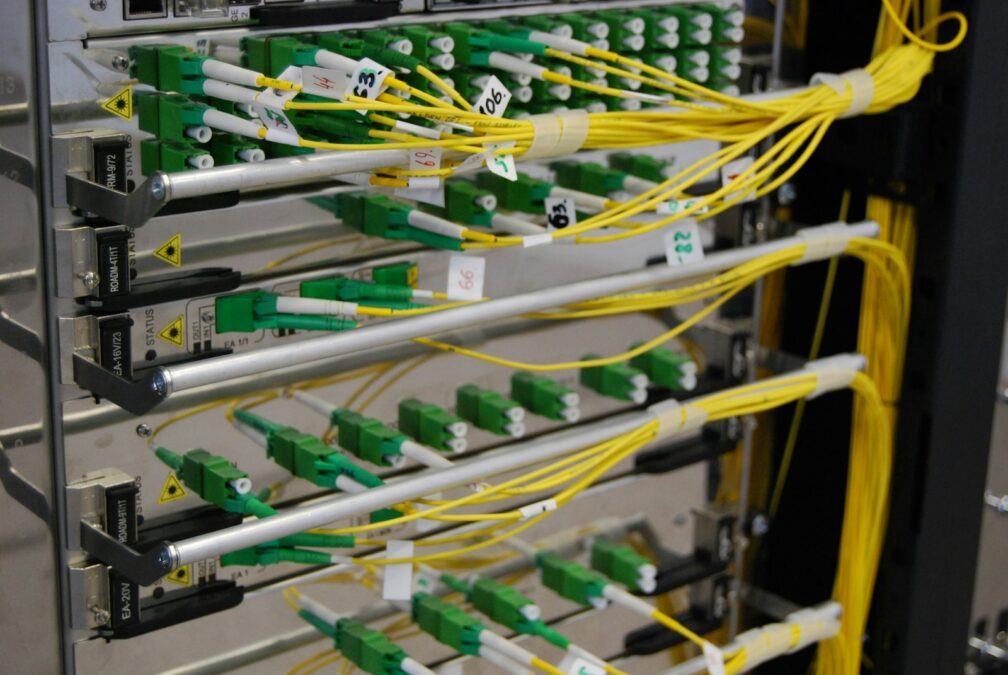How Edge Computing is Alleviating the Strain on Centralized Data Infrastructure in Dubai
In the bustling metropolis of Dubai, edge computing is emerging as a key solution to the growing challenges faced by centralized data centers. As the volume of data generated by businesses and individuals continues to surge, traditional data centers are struggling to keep up with the demand for processing and storage. Edge computing, a distributed computing paradigm that brings computation closer to the data source, is proving to be a game-changer in alleviating the strain on these data centers and enhancing overall network performance.
Understanding the Burden on Data Centers in Dubai
Dubai’s rapid digital transformation has led to an explosion of data from various sources, including smart city initiatives, IoT devices, e-commerce platforms, and social media. This massive influx of data is putting immense pressure on centralized data centers, which are often located far away from the data sources. The long distances that data needs to travel result in increased latency, network congestion, and higher bandwidth costs. Moreover, the growing demand for real-time data processing and analysis further exacerbates the challenges faced by data centers.
How Edge Computing Eases the Load
Edge computing addresses these challenges by processing data closer to its source, at the “edge” of the network. By deploying computing resources at or near the data source, edge computing reduces the amount of data that needs to be transmitted to centralized data centers. This not only reduces latency and network congestion but also minimizes bandwidth costs and enhances data security. Additionally, edge computing enables real-time or near-real-time data processing, which is crucial for applications that require immediate responses, such as autonomous vehicles, industrial automation, and smart city systems.
Benefits of Edge Computing for Businesses in Dubai
The adoption of edge computing offers several benefits to businesses in Dubai. Firstly, it improves the performance and responsiveness of applications by reducing latency and ensuring faster data processing. This is particularly important for businesses that rely on real-time data insights for decision-making. Secondly, edge computing enhances data security by processing sensitive data locally, minimizing the risk of data breaches during transmission. Thirdly, edge computing can lead to cost savings by reducing the need for expensive bandwidth and storage resources at centralized data centers.
Use Cases of Edge Computing in Dubai
Edge computing is finding applications across various sectors in Dubai. In the retail industry, edge computing is enabling personalized customer experiences by analyzing real-time data on shopping behavior. In the transportation sector, edge computing is powering intelligent traffic management systems that optimize traffic flow and reduce congestion. In the manufacturing sector, edge computing is facilitating predictive maintenance by analyzing data from sensors on machines to detect potential failures before they occur.
Challenges and Future Outlook
While the benefits of edge computing are undeniable, its implementation in Dubai comes with certain challenges. One of the main challenges is the need for robust and reliable edge infrastructure. Dubai is investing in building edge data centers and deploying edge devices to ensure the seamless operation of edge computing applications. Another challenge is the management and security of edge computing resources. As the number of edge devices grows, ensuring their security and managing their operations becomes complex. Dubai is working with technology partners to develop comprehensive edge management solutions that address these challenges.
Despite these challenges, the future of edge computing in Dubai is promising. As technology continues to advance and the demand for real-time data processing intensifies, edge computing is poised to play an increasingly important role in alleviating the strain on centralized data centers and driving innovation across various sectors in Dubai.
Edge Computing and Smart Dubai
Edge computing is a key enabler of the Smart Dubai initiative, which aims to transform Dubai into a leading smart city. By processing data locally, edge computing empowers various smart city applications, such as smart energy grids, intelligent waste management systems, and connected public transportation. These applications rely on real-time data analysis and decision-making, which edge computing can deliver efficiently and effectively.
The Economic Impact of Edge Computing
The adoption of edge computing is not only transforming the technological landscape of Dubai but also having a significant economic impact. By reducing operational costs for businesses, improving efficiency, and enabling new business models, edge computing is contributing to the growth of the digital economy in Dubai. Moreover, the development of edge computing infrastructure and applications is creating new job opportunities and driving innovation across various sectors.
#edgecomputing #datacenters #cloudcomputing #Dubai #UAE #networkcongestion #bandwidth #latency #scalability #costreduction #smartcity

